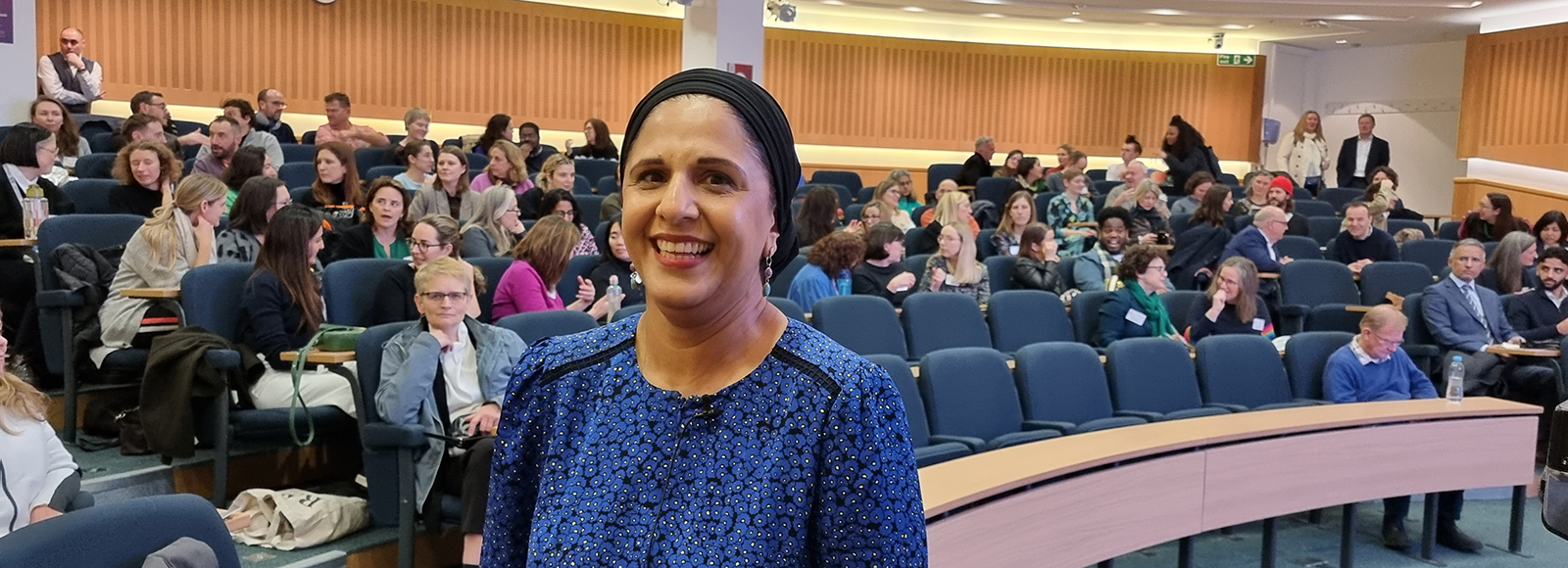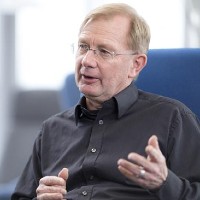Respected Bayes Centre for Charity Effectiveness alumna sets out a new path for philanthropy
Bayes CCE alumna charts a path to a new kind of third sector giving and community involvement
One of the most prominent alumni of the Centre for Charity Effectiveness (CCE) at Bayes, Fozia Irfan, Director of Impact and Influence at BBC Children in Need, returned this week to launch her work around a new approach to philanthropy.
Presenting the key findings and lessons from a ‘Manual for Social Change’ she produced as the culmination of her Churchill fellowship, Fozia set out her vision of a new model of philanthropy to catalyse social change in the UK.
The Churchill Fellowship funded her travel to America, where she studied foundations which have adopted social justice based approaches to tackling inequality. These approaches hand power to grassroots communities and people.
Fozia completed an MSc in Philanthropy, Grantmaking and Social Investment at Bayes Business School (formerly Cass) with Distinction. Students, alumni, staff and sector leaders flocked to hear her speak at a fully-booked event. She is also a Visiting Lecturer on Bayes’ Charity Management Masters Programme.
CCE Director Alex Skailes welcomed more than 150 guests to the event. She said: “When Fozia floated the idea to host the launch it didn’t need much thinking about but we rapidly went from planning to meet in one relatively small room to filling the auditorium.
“It is an opportunity to welcome back a star alumna and someone who has been an inspiring supporter of the CCE and generous in returning to share her experiences with our students. Her fresh thinking has culminated in the Transformative Philanthropy Report and accompanying manual for social change.”
DEI is at the heart of Fozia’s approach, having previously set up the ground-breaking Diversity, Equity and Inclusion Coalition of foundations, bringing together fifteen major national foundations in the implementation of more effective and equitable grant-making strategies.
An ambitious challenge
Acknowledging that she had felt “quite apprehensive about doing the work, putting my head above the parapet” before travelling to America, Fozia recounted a conversation in which she was told her one job was “to make the invisible visible”.
“That's really what I want to share with you today. I want to share what I learned through meeting these amazing, inspirational funders who were unapologetic about their approach. So, this is a manual, it’s not a book and it’s not an academic report. It's not even a verbatim account of what people told me. It's my translation of their ideas into a prototype or a model which can be put into practice here. And let me be very clear that that this manual is given in the spirit of generosity. Maybe It's really about what we need to do better and what we can do better.”
Traditional philanthropy models are being challenged at a time when philanthropy is badly needed to respond to a myriad of crises – including climate change and the cost of living, Fozia said. That criticism is challenging models where wealthy people and organisations with quite often, the least knowledge of the challenges and issues dictate how the money they donate is spent.
Referencing recent books that have sparked conversation in the voluntary sector, Fozia said: “These people have talked about funders having analysis paralysis - highlighting the amount of time we spend navel-gazing, procrastinating, commissioning research while Rome is burning. That is a luxury of privilege.”
It is painful to acknowledge, Fozia said, that institutional philanthropy has not had a leading part in the catalysation of the most profound social movements of the last ten years.
“That is true of life-changing social movements like Black Lives Matter, climate justice and #MeToo. They have risen from individuals in grassroots community organising outside our institutions,” she said.
Featured Bayes Experts
-
Director, Centre for Charity Effectiveness (CCE)


